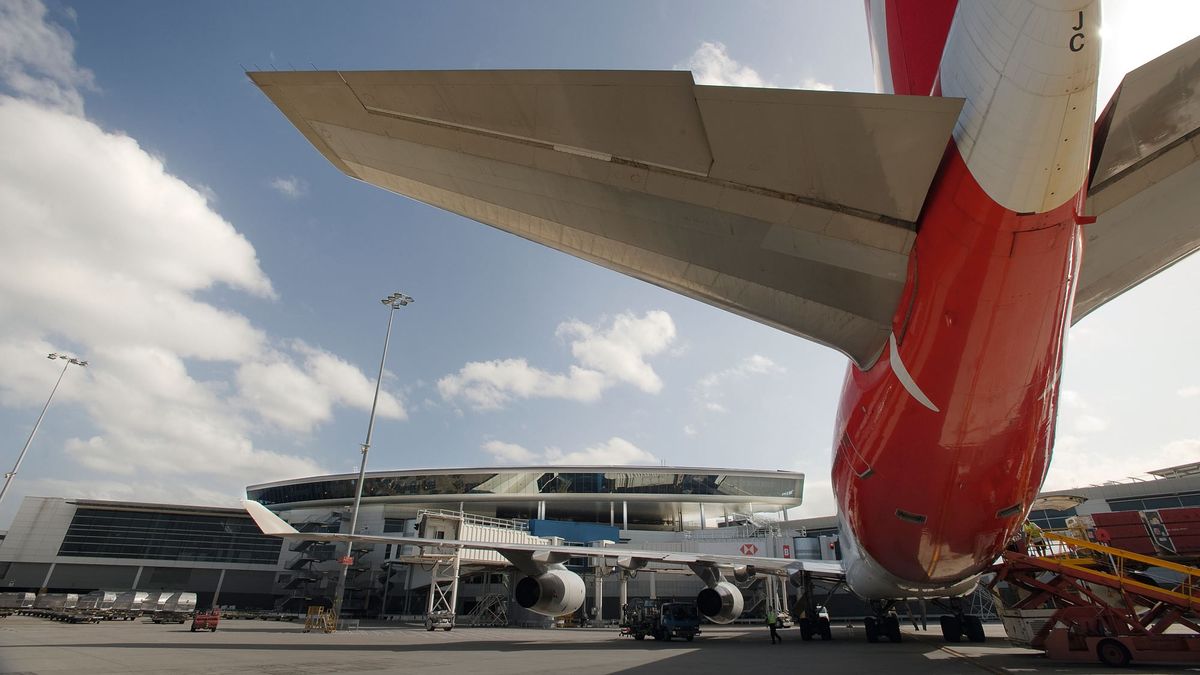Qantas to report the slimmest of profits
For Qantas, the 2020 financial year will be made up of two astoundingly, almost absurdly different halves.

Qantas will present its wrap of the 2020 financial year on Thursday August 20, with experts predicting the airline will squeak in a slim $25 million in profit compared to $912 million this time last year, buoyed by strong performance in the months before COVID-19 took hold.
Analysts at Goldman Sachs expect Qantas' overall before-tax earnings to land in the vicinity of $2.2 billion – a clean drop from the $3.52b of FY2019 but again, bolstered by the pre-pandemic stretch from July 2019 to January 2020.
Those seven months now seem blissfully normal, probably because they were exactly that: for Qantas, as with all other airlines, the 2020 financial year is going to comprised of two astoundingly, almost absurdly different halves.
In presenting the July-December 2019 results, CEO Alan Joyce said that even allowing for some softness in the domestic market and disruptions in Hong Kong from ongoing anti-Government protests, Qantas clocked a solid $771 million in underlying pre-tax profit and remained "in a strong position going forward."
Direct flights between Brisbane and Chicago were to launch in under eight weeks while the daily Perth-London service "continued to outperform."
The stage was set for Qantas to finally ink a deal for the ultra-long range Airbus A350-1000 jets needed to mount ambitious non-stop Project Sunrise flights from Sydney and Melbourne to New York, London and Paris.
The arrival of COVID-19
The coronavirus was then a blip on the radar, albeit one which had already seen Qantas suspend flights from Sydney to Beijing and Shanghai starting February 9, with the first cases already reported in Australia after a Chinese national arrived from Guangzhou and Sydney and Melbourne residents returned from trips to China, having spent time in Wuhan.
On February 20 Qantas had reduced flights to Hong Kong and Japan and trimmed capacity to Singapore, with Joyce noting that the China-centric coronavirus was having "some secondary impacts with weaker demand" in those Asian markets, although "other key routes, like the US and UK, haven’t been impacted."
Exactly four weeks later, Joyce announced that Qantas was suspending all international flights from the end of March 2020 – a pause which is now set to stretch into the middle of 2021.
More than half of the January-June 2020 period will have seen Qantas reduced to a shadow of its former self, with even domestic flights hammered by border closures until it was flying at 5% of pre-pandemic levels, with the aim of slowly rebuilding capacity to reach 15% by the end of June.
The hardest year lies ahead
And as Qantas enters the 2021 financial year, the longest, hardest months are still to come.
The travel-boosting prospects of the hoped-for Australia-New Zealand 'bubble' have again been dashed, following a sudden spike in New Zealand infections after 100 days without community transmission.
Even on the domestic front, state border closures continue to wreak havoc on planning: Joyce observed last week that the airline remains pegged at 20% of pre-COVID capacity, not the 45% it hoped to see if border restrictions had softened.
This Thursday's FY2020 results will also arrive as Qantas prepares to send the bulk of its Boeing 787s to a storage facility at the edge of California's Mojave Desert, where the Dreamliners will be mothballed alongside the Airbus A380 fleet.
If there's any bright spot in the financials it'll come from the Qantas Loyalty division, which earns its coin from on-the-ground activities rather than flying and is likely to now be the most profitable part of Qantas.
Joyce may also offer an update on the three-year 'rightsize, restructure and recapitalise' plan announced in late June to raise almost $1.9 billion in equity and reduce costs by a staggering $15 billion. This will include a "domestic fleet optimisation", the specific shape of which has yet to be detailed.
Also read: Post-pandemic, Alan Joyce sees Qantas Project Sunrise as a ray of hope

17 Aug 2020
Total posts 1
Can someone explain to me why the Qantas share price is the same as what it was 3 years ago. 3 years ago Qantas made its second biggest profit in its 98 year history with massive revenue Forecasts ahead. Today 75% of its planes are parked in the desert and it is not flying overseas and a couple of dozen half filled planes flying. Throw in $5 Billion of debt and no Increase of income anywhere is sight.
WHY WOULD ANYONE PAY MORE THAN A DOLLAR FOR QANTAS SHARES IN ITS CURRENT STATE. Stock market madness.
It’s all down side from here.
Valuations are disconnected to the real world.
09 May 2020
Total posts 576
@McGoldbug
It probably will remain stable until the first 2 shareholders of sufficient volume start selling at a significant loss, to which many otherwise will then follow like lemmings in a panic like ‘29. I suspect everyone knows the industry is having a crisis but there is limited other safe haven to park your money when cash interest rates are at all time low in most countries (The horse had long bolted for relevant healthcare stocks) so as long as the price stay stable, they are staying put and accept the dividend will be non existent (a concern for retirees but not major stock speculators).
Qantas - Qantas Frequent Flyer
28 Oct 2011
Total posts 467
Why on earth would you expect share prices to be reflective of anything other than the market's sentiment about the future earnings of a company? People are looking at the value of QF in the years ahead, when Coronavirus will - hopefully - be just a bitter memory.
Same as foreign exchange fluctuations which often bear no resemblance to countries' actual economic performance.
28 Mar 2018
Total posts 37
The report mentioned fleet being mothballed and the financial bottom line being hammered.
I’m sure the thousands of staff being mothballed would use the term hammered to express how they’re feeling.
Etihad - Etihad Guest
28 Feb 2019
Total posts 12
The share price simply equals the net present value of the future earnings of the company in the eyes of those that are the most recent purchasers of the shares. What they see and what the seller sees are two different thing. Invariably the current year profits of a company have very little weight in the way most value a share price. A classic example is Uber - has never made a profit, looses $USD8b last year, won't make a profit for many years but people are still buying its shares for its future earnings. What Qantas trades for today already has priced into it last year, this year and many future years of earnings. That is why it is priced the same as 3 years ago. Add to that it has a weak competitor (compare to 3 years ago)....the list is endless.
17 Jan 2018
Total posts 83
Well informed.
Hi Guest, join in the discussion on Qantas to report the slimmest of profits